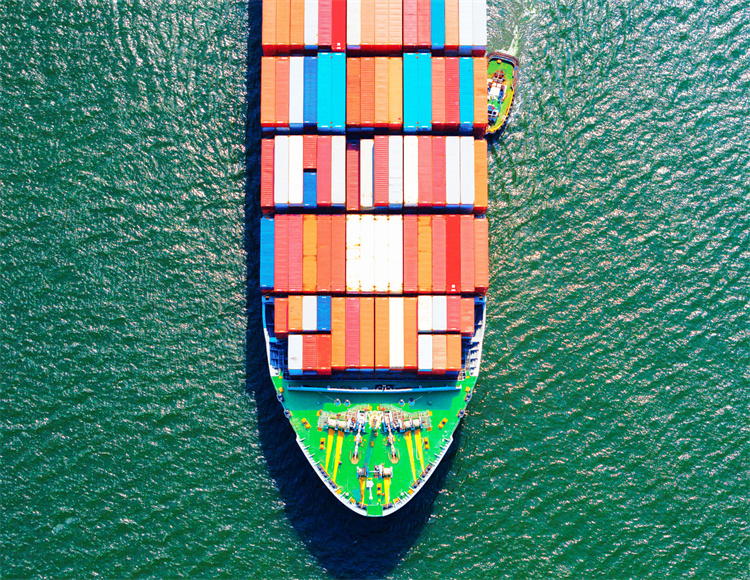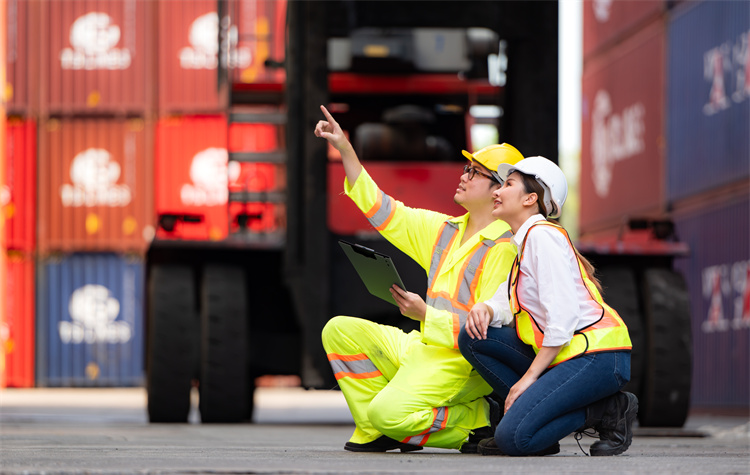The Influence of Customs on Global Trade and Local Economies

Customs play a pivotal role in facilitating global trade by ensuring the smooth movement of goods across borders while safeguarding domestic industries. Understanding customs is crucial in today's interconnected world, where global trade has surged by 25% over the last decade. This growth underscores the importance of efficient customs processes. Customs regulations significantly impact local economies, influencing job creation and revenue generation. By balancing trade facilitation with protectionist measures, customs shape the economic landscape. Their influence extends beyond borders, affecting both global trade dynamics and local economic development.
Understanding Customs Regulations

Definition and Purpose
Customs regulations serve as the backbone of global trade. They ensure that goods move smoothly across borders while protecting domestic industries. Historically, customs have evolved significantly. In 1968, the European Economic Community (EEC) formed a customs union, marking a pivotal step in harmonizing customs across Europe. This evolution continued with the introduction of the single administrative document in 1988, which simplified processes by replacing numerous documents.
Modern developments focus on streamlining and standardizing customs procedures. The World Customs Organization (WCO) plays a crucial role in this effort. The Revised Kyoto Convention, adopted in 1999, exemplifies the push towards simplified and harmonized customs operations worldwide.
Key Components of Customs Regulations
Customs regulations encompass several key components:
Tariffs and Duties: These are taxes imposed on imported goods. They protect local industries by making foreign products more expensive. Tariffs also generate revenue for governments.
Import and Export Restrictions: These regulations control the flow of goods. They ensure that imports and exports comply with national laws and international agreements.
International Customs Agreements
International agreements shape customs regulations globally. They aim to facilitate trade and reduce barriers.
World Trade Organization (WTO)
The WTO sets global trade rules. It promotes fair competition and helps resolve trade disputes. By fostering cooperation among nations, the WTO enhances the efficiency of customs processes.
Regional Trade Agreements
Regional agreements, like the North American Free Trade Agreement (NAFTA), further streamline customs procedures. They encourage trade between member countries by reducing tariffs and simplifying regulations.
Impact on Global Trade
Customs play a crucial role in shaping global trade dynamics. They facilitate the movement of goods across borders while ensuring compliance with international standards. This section explores how customs influence global trade by streamlining processes, reducing barriers, and addressing challenges.
Facilitating Global Trade
Streamlining Processes
Customs authorities streamline processes to enhance the efficiency of global trade. They implement electronic systems that automate documentation and clearance procedures. These systems reduce manual errors and expedite the movement of goods. For instance, the adoption of TradeTech has significantly cut red tape at borders. This technology enables real-time tracking and data sharing, which improves supply chain efficiency and reduces customs duties.
Reducing Barriers
Customs work to reduce barriers that hinder global trade. They collaborate with international organizations to harmonize regulations and standards. This collaboration ensures that goods meet the necessary requirements for entry into different markets. By reducing tariffs and simplifying procedures, customs facilitate smoother trade flows. Regional trade agreements, such as NAFTA, exemplify efforts to minimize trade barriers among member countries and align with global trade policies.
Challenges and Barriers in Global Trade
Compliance Costs
Compliance with customs regulations incurs costs for businesses. These costs include fees for documentation, inspections, and certifications. Small and medium-sized enterprises (SMEs) often face significant financial burdens due to these expenses. Customs authorities strive to balance the need for regulation with the goal of minimizing compliance costs. Legislative reforms, like those in the Philippines, aim to address these challenges by adopting transaction valuation for imports.
Delays and Bureaucracy
Delays and bureaucracy pose significant challenges in global trade. Complex customs procedures can lead to prolonged clearance times. These delays disrupt supply chains and increase costs for businesses. Customs officials work to streamline processes and reduce bureaucratic hurdles. The use of technology, such as electronic data interchange (EDI), helps expedite customs clearance and minimize delays.
Case Studies
Successful Implementations
Several countries have successfully implemented customs reforms to enhance trade facilitation. For example, Singapore's TradeNet system integrates various government agencies into a single platform. This integration streamlines customs processes and reduces clearance times. As a result, Singapore ranks among the top countries for ease of doing business.
Areas for Improvement
Despite advancements, there are areas for improvement in customs operations. Some countries still face challenges in adopting modern technologies and practices. Limited resources and infrastructure hinder the implementation of efficient customs systems. Continuous efforts are needed to address these issues and ensure that customs facilitate rather than impede global trade.
Influence on Local Economies

Customs regulations significantly impact local economies by influencing economic growth, presenting challenges, and offering opportunities for innovation. This section delves into how customs shape local economic landscapes.
Economic Growth and Development
Customs play a vital role in fostering economic growth and development within local economies. They contribute to job creation and revenue generation, which are essential for economic stability.
Job Creation
Customs regulations can stimulate job creation by encouraging local industries to expand and compete in the global market. When customs processes are efficient, businesses can focus on scaling operations and hiring more employees. For instance, the digitization of customs procedures has reduced clearance times, allowing companies to allocate resources toward workforce expansion.
Revenue Generation
Governments rely on customs duties and tariffs as a significant source of revenue. These funds support public services and infrastructure development, which are crucial for economic growth. By imposing tariffs on imported goods, customs protect domestic industries and generate income that can be reinvested into the local economy.
Challenges for Local Businesses
While customs regulations offer benefits, they also present challenges for local businesses. Navigating complex regulations and competing with international firms can be daunting.
Navigating Regulations
Local businesses often face difficulties in understanding and complying with customs regulations. The complexity of these rules can lead to increased costs and delays. Small and medium-sized enterprises (SMEs) may struggle more due to limited resources. However, initiatives aimed at simplifying customs procedures can alleviate these burdens and enhance business operations.
Competition with International Firms
Customs regulations can create a competitive environment where local businesses must contend with international firms. While tariffs protect domestic industries, they also necessitate that local companies innovate and improve efficiency to remain competitive. This competition can drive local businesses to enhance their products and services, ultimately benefiting consumers.
Opportunities for Innovation
Customs regulations also present opportunities for innovation, allowing businesses to adapt to changes and leverage technology.
Adapting to Changes
Businesses must continuously adapt to evolving customs regulations and global trade patterns. This adaptability fosters innovation as companies develop new strategies to comply with regulations while maintaining competitiveness. The dynamic nature of global trade encourages businesses to explore innovative solutions to meet changing demands.
Leveraging Technology
Technology plays a crucial role in transforming customs processes and enhancing efficiency. The integration of digital tools, such as TradeTech, streamlines customs operations and reduces processing times. By leveraging technology, businesses can improve supply chain visibility and optimize logistics. This technological advancement not only benefits businesses but also enhances the overall efficiency of customs processes.
JUSDA's Role in Global Trade and Local Economies
JUSDA stands as a pivotal player in the realm of global trade, offering comprehensive supply chain solutions that enhance efficiency and drive economic growth. Their innovative approaches and industry-specific solutions position them as leaders in the logistics sector.
JUSDA's Global Supply Chain Solutions
JUSDA provides a wide array of supply chain services that cater to diverse industries. Their solutions encompass international container shipping, air freight forwarding, customs clearance, and warehouse management. These services ensure seamless movement of goods across borders, facilitating global trade.
Integration of IoT and Cloud Computing
JUSDA leverages cutting-edge technology to optimize supply chain operations. The integration of the Internet of Things (IoT) and cloud computing enhances real-time data sharing and collaboration. This technological advancement allows for efficient tracking and management of goods, reducing delays and improving overall supply chain visibility.
JUSDA tailors its services to meet the unique needs of various industries. They offer specialized industry-specific solutions for sectors such as electronic manufacturing, automotive, and medical health. By understanding the specific requirements of each industry, JUSDA ensures that their clients receive customized and effective supply chain management.
JUSDA tailors its services to meet the unique needs of various industries. They offer specialized solutions for sectors such as electronic manufacturing, automotive, and medical health. By understanding the specific requirements of each industry, JUSDA ensures that their clients receive customized and effective supply chain management.
Enhancing Efficiency in Customs Processes
JUSDA plays a crucial role in streamlining customs processes, which are vital for facilitating global trade. Their innovative solutions reduce bureaucratic hurdles and expedite the movement of goods.
JusLink Intelligent Supply Chain
The JusLink Intelligent Supply Chain platform integrates IoT, cloud computing, and big data to enhance customs efficiency. This platform enables real-time collaboration and information sharing, which minimizes delays and optimizes logistics operations. By leveraging this technology, JUSDA ensures that customs processes are smooth and efficient.
Case Studies of Success
JUSDA's success stories highlight their impact on global trade and local economies. For instance, their collaboration with a leading electronics manufacturer resulted in a 30% reduction in customs clearance times. This improvement not only enhanced the manufacturer's supply chain efficiency but also contributed to local economic growth by creating jobs and generating revenue.

JUSDA Solutions
To provide you with professional solutions and quotations.
This blog explored how customs influence global trade and local economies. Key points include the role of customs in facilitating trade, protecting domestic industries, and driving economic growth. Policymakers and businesses must recognize the importance of investing in technology and talent to navigate digital customs effectively. Future trends suggest that leveraging technological evolution will be crucial for balancing trade facilitation with protection. By staying agile and adopting advanced technologies, customs can continue to safeguard public safety while enhancing economic interests.
See Also
Revealing the Influence of International Trade Policies on Economies
The Significance of Global Trade Supply Chains
Discovering Achievement: Supply Chain Visibility in Global E-commerce
Jusda Supply Chains and Global Consumer Needs: An In-Depth Analysis
